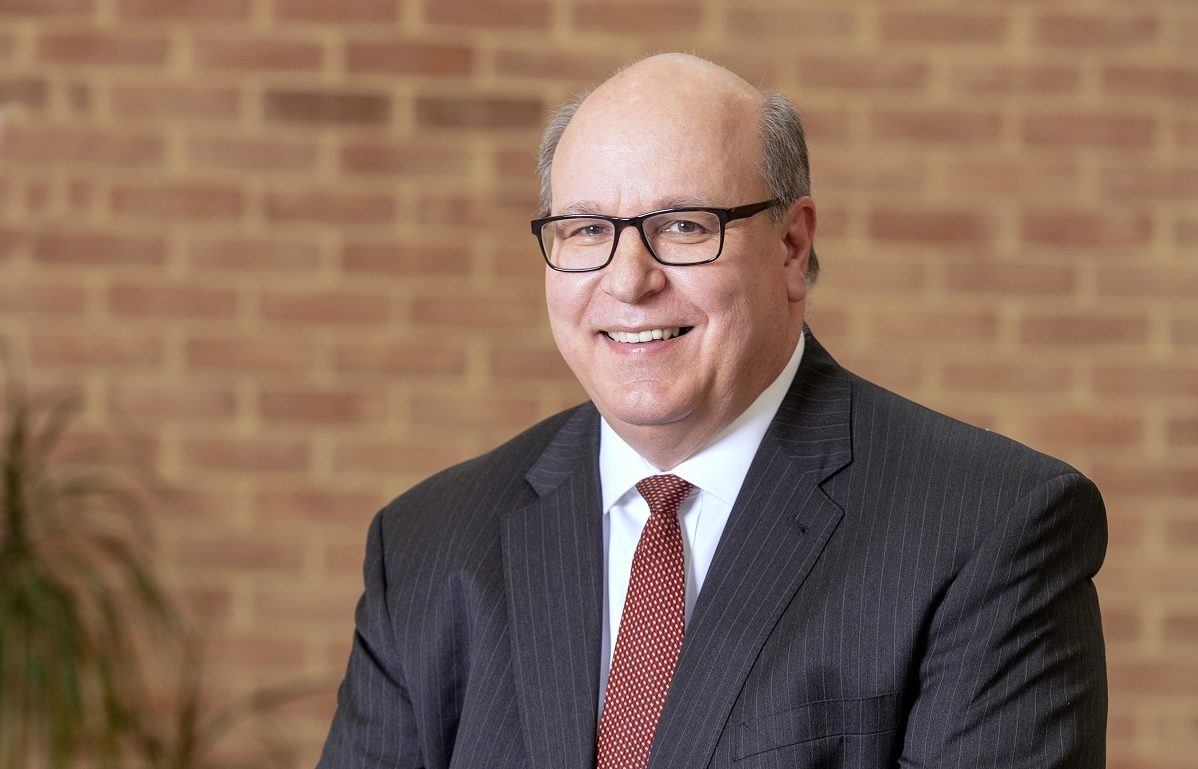Massini: Penn State cardiac care builds amazing legacy

Penn State Health CEO Steve Massini sent the following email to health system employees on Feb. 24 in recognition of heart month.
Dear Colleagues,
Many of us – myself included – have lost someone we love to heart disease. It’s the number one cause of death around the world. It’s why February is designated as Heart Month.
So when I hear remarkable news like I did this week – how Penn State Health’s heart transplant program’s outcomes are among the best in the nation, and how our Penn State Health Milton S. Hershey Medical Center became the second hospital in the United States to implant a newly designed mechanical pump in a patient with severe heart failure – I am proud of the work we are doing. Every day, nearly 17,000 of us work together to improve our patients’ lives, and that work will endure beyond this pandemic.
And so this month, I want to shine a light on all those involved in heart health, including our newest colleagues at the Ortenzio Heart Center at Penn State Health Holy Spirit Medical Center. From State College to Reading, our outstanding teams prevent, diagnose and treat all kinds of heart conditions, including congenital defects in our tiniest newborns.
Did you know that Penn State is an international leader in the research, development and clinical use of heart pumps and artificial hearts, and that the technology we developed throughout the past 50 years still empowers the most complex heart failure patients today? It’s true – and it’s incredible.
It started in 1970, when Dr. William Pierce, a young surgeon and engineer, was recruited to the newly opened Penn State College of Medicine and Hershey Medical Center. As a medical student, Dr. Pierce saw how some patients died on the operating table because they couldn’t be weaned from the heart-lung machine that pumped their blood during open heart surgery.
Dr. Pierce led a team that engineered one of the world’s first air-driven heart pumps. That pump gained international attention after it was used to save a young woman who was undergoing surgery in Hershey in 1976. The moment Dr. Pierce attached the pump to her heart, it began circulating her blood. Within days, her heart recovered enough to have the pump removed, and she went home.
By the 1980s, hospitals around the world were using the Penn State Heart-Assist Pump not only for patients whose hearts struggled during surgery, but also those whose hearts were weakening as they awaited a transplant. Later, Penn State pioneered devices that could serve as permanent treatments for patients in end-stage heart failure who couldn’t undergo a transplant. These devices were totally implantable, allowing patients to go home and return to fairly normal lives.
In this video, you can learn more about how Penn State laid the foundation for heart-assist technologies that continue to save lives today. What struck me, as I watched it, was how that same spirit of innovation and collaboration exists today and has aided us throughout the pandemic.
This Heart Month, I encourage you to do all you can to care for your heart. Exercising, eating healthy and an attitude of gratitude go a long way toward staying well. You can also take our heart disease risk assessment or visit the American Heart Association’s website for heart health tips.
And, you can take comfort in knowing that if you or someone you love needs cardiac care, our colleagues within Penn State Health offer expertise and outcomes that are among the very best in the nation. What an amazing legacy we all share.
Enjoy your day, and I hope to see you at tomorrow’s Penn State Health town hall.
Steve Massini
CEO
Penn State Health
If you're having trouble accessing this content, or would like it in another format, please email Penn State Health Marketing & Communications.
